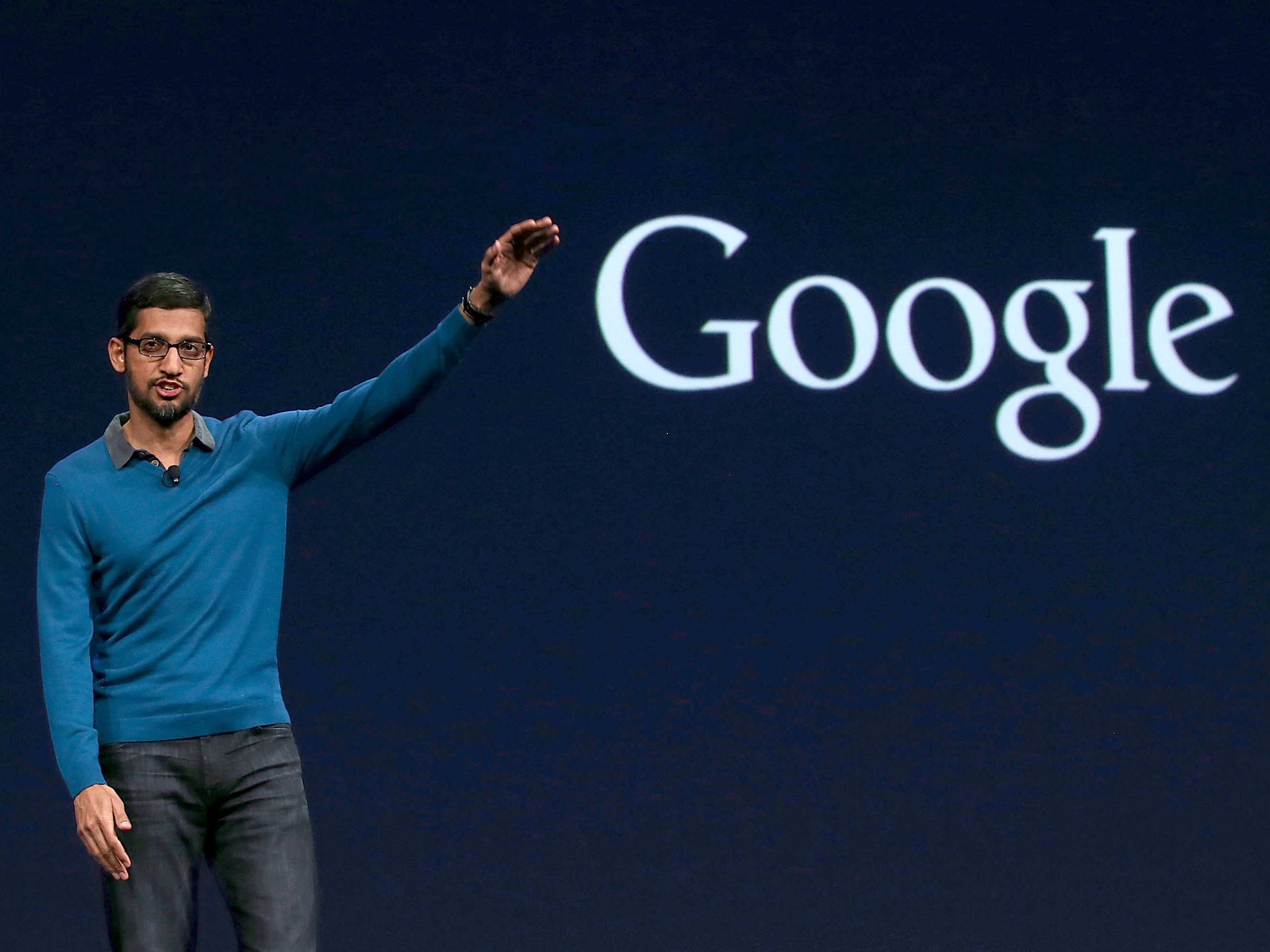Luminaries of the tech industry have voiced concern, sharp criticism, and calls for unity in the wake of President Trump’s unprecedented executive order barring refugees entering the US.
Over the weekend, CEOs of companies like Google, Apple, Facebook, and Airbnb shared their near-unanimous opposition to Trump’s executive order, which bars people from seven predominantly Muslim countries from entering the US for 90 days.
Some companies, such as ride-hailing app Lyft, pledged large donations to the The American Civil Liberties Union for its legal work in challenging Trump’s order. Many said they would offer free legal assistance to employees affected by the ban.
Here are the reactions to Trump’s executive order on immigration from the biggest names in tech:
Facebook's Mark Zuckerberg was one of the first tech CEOs to voice concern over the order.

"Like many of you, I'm concerned about the impact of the recent executive orders signed by President Trump," Zuckerberg said in a Facebook post on Friday.
He said he remained optimistic about Trump's vague commitment to protecting "Dreamer" immigrants who were brought into the US at a young age from deportation.
You can read Zuckerberg's full post here.
Google CEO Sundar Pichai criticized the order and urged affected employees to return to the US as soon as possible.

"We're upset about the impact of this order and any proposals that could impose restrictions on Googlers and their families, or that could create barriers to bringing great talent to the US," Pichai wrote in a company-wide email.
"It's painful to see the personal cost of this executive order on our colleagues."
You can read Pichai's full letter to Google employees here.
Google cofounder Sergey Brin was spotted at a protest opposing the ban at the San Francisco airport on Saturday.

"I'm here because I'm a refugee," he told Forbes.
Microsoft President Brad Smith sent a company-wide email offering legal assistance to affected employees.

"We believe that immigration laws can and should protect the public without sacrificing people's freedom of expression or religion," Smith wrote.
CEO Satya Nadella, who was born in India, also said that he'd "seen the positive impact that immigration has on our company, for the country, and for the world" in a preface to the e-mail.
You can read Microsoft's full letter to employees here.
Apple CEO Tim Cook: "It is not a policy we support."

Cook took a hard stance against Trump's executive order in an email to Apple employees on Saturday.
"I've heard from many of you who are deeply concerned about the executive order issued yesterday restricting immigration from seven Muslim-majority countries," he said. "I share your concerns. It is not a policy we support."
Cook added that Apple was ready to provide legal assistance to any employees affected by the order.
You can read Cook's full letter to employees here.
Uber CEO Travis Kalanick said his company will compensate affected drivers who can't return home. He also said he'd tell Trump how "this ban will impact many innocent people" when he meets with the president on Friday.

As part of Trump's business advisory committee, Kalanick has drawn criticism from protestors and his own employees for his ties to the administration.
"While every government has their own immigration controls, allowing people from all around the world to come here and make America their home has largely been the US's policy since its founding," Kalanick wrote in a company-wide email Saturday. "That means this ban will impact many innocent people-an issue that I will raise this coming Friday when I go to Washington for President Trump's first business advisory group meeting."
Uber's decision to service rides during a related taxi strike at the JFK airport on Saturday night caused thousands of people to furiously delete the Uber app, and the hashtag "#DeleteUber" briefly became a trending topic on Twitter.
You can read Kalanick's full letter to Uber employees here.
Lyft meanwhile pledged a $1 million donation to the ACLU, the non-profit organization that was able to successfully force a temporary stay on the immigration ban.

"We stand firmly against these actions, and will not be silent on issues that threaten the values of our community," Lyft cofounders John Zimmer and Logan Green said in a letter to customers.
"We know this directly impacts many of our community members, their families, and friends. We stand with you, and are donating $1,000,000 over the next four years to the ACLU to defend our constitution. We ask that you continue to be there for each other - and together, continue proving the power of community."
Netflix CEO Reed Hastings called the ban "so un-American it pains us all."

"Trump's actions are hurting Netflix employees around the world, and are so un-American it pains us all," he wrote in a Facebook post Saturday. "Worse, these actions will make America less safe (through hatred and loss of allies) rather than more safe. A very sad week, and more to come with the lives of over 600,000 Dreamers here in a America under imminent threat. It is time to link arms together to protect American values of freedom and opportunity."
Airbnb pledged to give free housing to immigrants who are unable to enter the U.S., and CEO Brian Chesky said "we must stand with those who are affected."

In a series of tweets on Saturday, Chesky said Airbnb would provide "free housing to refugees and anyone not allowed in the US."
"Not allowing countries or refugees into America is not right, and we must stand with those who are affected," he continued. "Open doors brings all of US together. Closing doors further divides US. Let's all find ways to connect people, not separate them."
In a more pointed memo to employees, Chesky said that Trump's order is "a policy I profoundly disagree with and it is a direct obstacle to our mission at Airbnb."
Tesla and SpaceX CEO Elon Musk said the immigration is "not the best way to address the country's challenges."

Musk, who sits on Trump's economic advisory team, sent out a diplomatically worded statement saying that Trump's immigration order "is not the best way to address the country's challenges," adding that it was affecting those who have done nothing wrong and "don't deserve to be rejected."
Twitter CEO Jack Dorsey said that the "humanitarian and economic impact" of the order is "real and upsetting."

In a tweet from the company's official account, a Twitter spokesperson added, "Twitter is built by immigrants of all religions. We stand for and with them, always."
Dorsey, who is also the CEO of payments company Square, tweeted a statistic that "11% of Syrian immigrants to the US are business owners, more than triple that of US-born business owners."
Twitter has said in the past that it would ban Trump's account on the service if he violated its hate speech policies, and protesters recently challenged the company to enact a ban because of Trump's comments on immigrants.
Y Combinator president Sam Altman urged tech leaders to "take a stand" against Trump's administration.

"This administration has already shown that they are not particularly impressed by the first amendment, and that they are interested in other anti-immigrant action," he wrote in a blog post. "So we must object, or our inaction will send a message that the administration can continue to take away our rights."
While Amazon CEO Jeff Bezos has stayed quiet on the ban, an internal memo from the company's head of HR said that the company would give legal aid to any affected employees.

"From the very beginning, Amazon has been committed to equal rights, tolerance and diversity-and we always will be," Amazon VP of HR Beth Galatti wrote in the memo, a copy of which was obtained by Business Insider. "As we've grown the company, we've worked hard to attract talented people from all over the world, and we believe this is one of the things that makes Amazon great-a diverse workforce helps us build better products for customers."
Box CEO Aaron Levie called the ban "wrong on every level."

In a series of tweets, cloud storage company Box's CEO Aaron Levie condemned Trump's order as "completely antithetical to the principles of America."
Dropbox CEO Drew Houston called the ban "un-American."

"Executive orders affecting world's most vulnerable are un-American," he wrote in a tweet. "Dropbox embraces people from all countries and faiths."
Some tech leaders, like prominent venture capitalist Chris Sacca and Nest founder Tony Fadell, have made large donations to the ACLU.

Sacca personally matched donations on Twitter up to $75,000, then doubled his match and gave $150,000. Nest founder and former Apple executive Tony Fadell also committed to matching donations up to $100,000.
Salesforce CEO Marc Benioff shared a message of solidarity with the hashtag "noban."

"When we close our hearts & stop loving other people as ourselves (MK 12:31) we forget who we truly are---a light unto the nations," he tweeted.
Stripe CEO Patrick Collison called the ban "economically damaging."

"Trump's stated immigration policies would be economically damaging and will in time be seen as morally wrong," wrote Collison. Stripe allows business to accept payments from anywhere in the world.
Peter Thiel, the billionaire investor behind PayPal and a close aid to Trump, denied that the ban was a "religious test."

"Peter doesn't support a religious test, and the administration has not imposed one," a spokesperson for Thiel told Forbes on Saturday.
Thiel immigrated to the US from Germany in the 1970s and has already facilitated meetings between Trump and top leaders in the tech industry.

